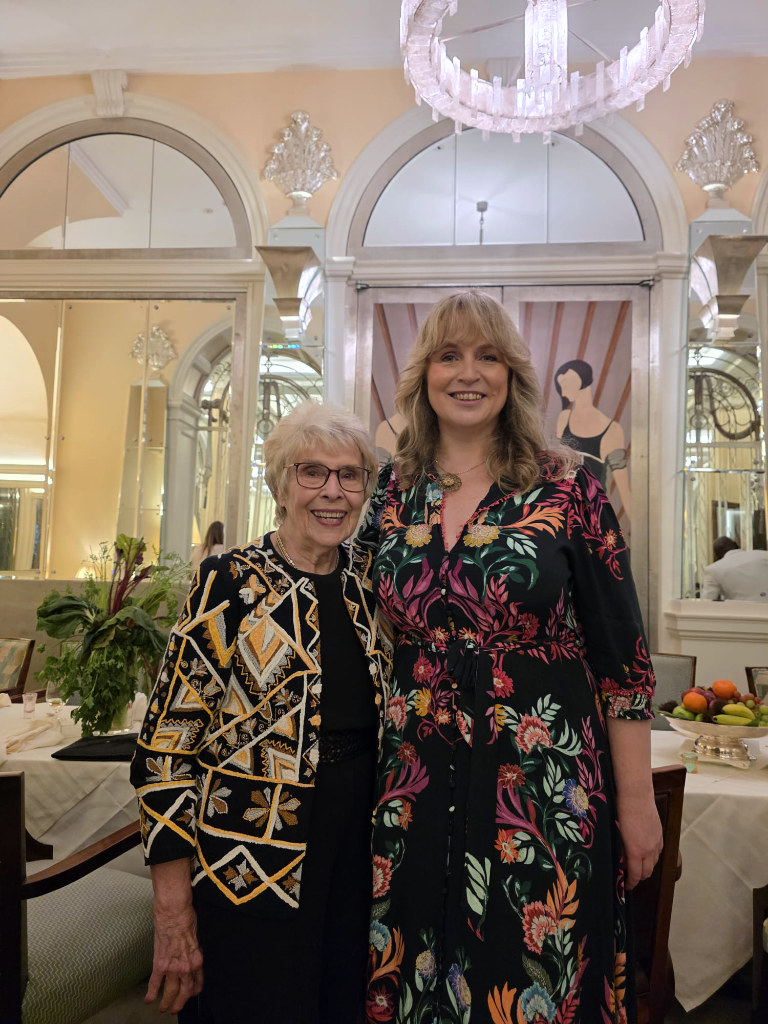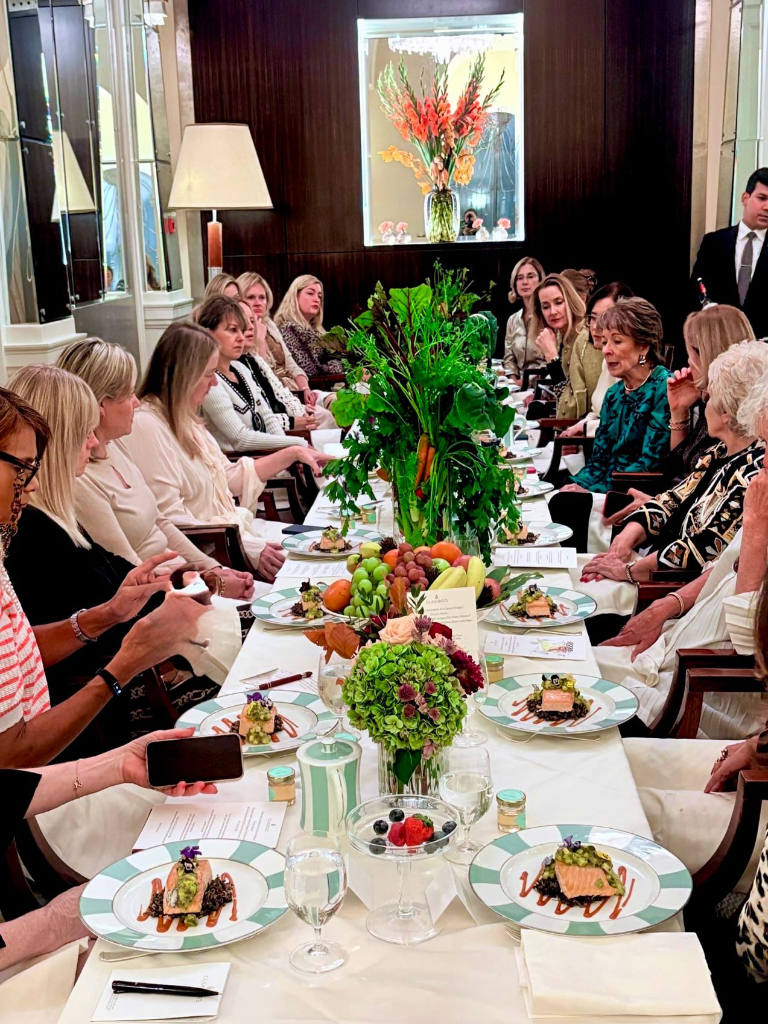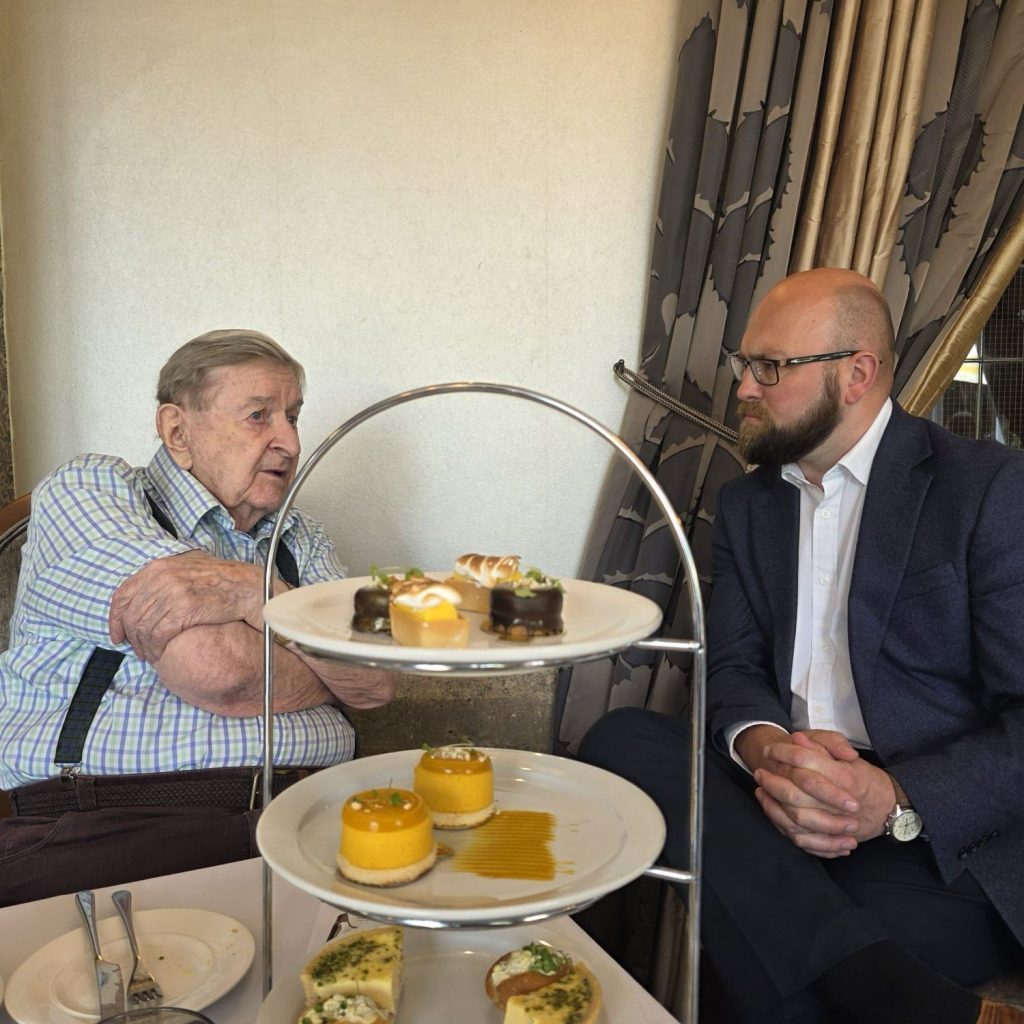Alla Svirinskaya’s Brunch Club
At Claridge’s this week, I found myself in a room filled with accomplished women, all gathered for one of Alla Svirinskaya’s Brunch Club events. The topic? Women’s health. The atmosphere? Electric with the kind of honest conversation that happens when women feel safe enough to speak their truth.
Professor Dame Lesley Regan DBE, Professor of Obstetrics and Gynaecology at Imperial College London, was our guest speaker. As she shared her insights, I was struck by a simple yet profound reality: we still don’t talk enough about women’s health, and when we do, we often make assumptions rather than asking questions.
The Silence That Costs Us
Throughout my decades working across multiple sectors and cultures, I’ve witnessed a curious phenomenon. Women who confidently lead teams, negotiate complex deals, and navigate challenging transformations will often remain silent about their own health concerns. We’ve become experts at putting everyone else first whilst our own wellbeing quietly slips down the priority list.
This isn’t about pointing fingers or assigning blame. It’s about recognising a pattern that serves no one well. When half the population doesn’t have open, informed conversations about their health needs, everyone loses out really – families, workplaces, and society as a whole.
Evidence Over Assumption
One of Dame Lesley’s key messages resonated deeply with me: the importance of evidence-based approaches to women’s health. For too long, women’s health concerns have been dismissed, minimised, or attributed to stress or emotion. The phrase “it’s probably just hormones” has done untold damage, shutting down legitimate health concerns before they’re properly explored.
What we need instead is curiosity. Questions rather than assumptions. A willingness to look at the evidence and adjust our understanding accordingly. This applies whether you’re a healthcare professional, a partner, a colleague, or the woman experiencing the symptoms herself.
The Power of Perspective
This matters because when it comes to women’s health, there’s rarely just one right answer. What works brilliantly for one woman might be completely wrong for another. Our bodies are complex systems, influenced by genetics, hormones, environment, lifestyle, stress levels, and countless other factors.
The magic happens when we acknowledge that there are multiple valid perspectives. A woman knows her own body. A healthcare professional brings evidence-based expertise. A partner or family member offers supportive observations. None of these perspectives should cancel out the others – instead, they should inform a fuller picture.
Creating Space for Honest Conversation
What Alla has created with her Brunch Club is precisely what’s needed: a space where accomplished women can be vulnerable about their health without fear of judgement or dismissal. Where we can share what’s really happening, ask the questions we’re afraid to ask elsewhere, and learn from both experts and each other.
This isn’t about excluding men from the conversation. Rather, it’s about creating specific spaces where women can speak freely about experiences that are uniquely ours, building confidence and knowledge that we can then bring into all our relationships and conversations.
Moving Forward: Practical Steps
So what can we actually do? Here are some thoughts:
For women: Make your health a non-negotiable priority. That niggling concern? Get it checked. That symptom you’ve been living with? It’s worth discussing with a professional. You’re not being dramatic – you’re being responsible.
For healthcare professionals: Listen more, assume less. When a woman describes her symptoms, believe her. Ask questions. Consider the evidence. Remember that textbook presentations aren’t the only valid ones.
For partners and families: Support the women in your life by encouraging them to prioritise their health. Offer practical help that creates space for medical appointments. Listen without trying to fix or minimise.
For employers: Recognise that supporting women’s health isn’t just the right thing to do – it’s good business. Flexible working arrangements, health insurance that covers women’s specific needs, and a culture where health concerns can be discussed openly all contribute to a healthier, more productive workforce.
A Collective Responsibility
Women’s health isn’t a niche issue – it affects all of us. When we unlock better understanding, better conversations, and better care for women’s health, everyone benefits. Children grow up with healthier mothers. Partners share life with healthier companions. Workplaces retain talented employees. Communities thrive.
As I left Claridge’s yesterday, I felt energised. Not because we’d solved all the challenges around women’s health, but because I’d spent time with women who are determined to change the conversation. Who refuse to accept silence, dismissal, or assumptions as good enough.
That’s the kind of transformation that creates lasting change. And it starts with each of us choosing to speak up, listen more carefully, and demand better – for ourselves and for each other.





